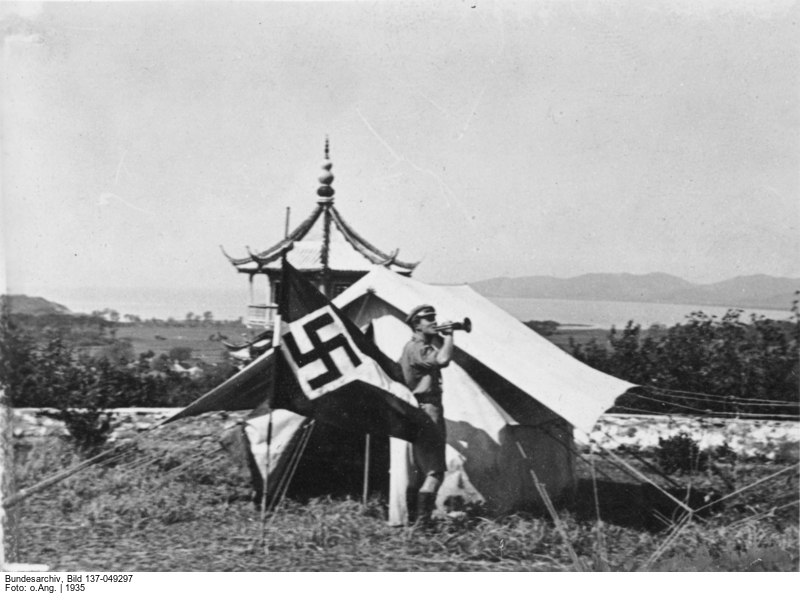Source

Source: Photograph, 1935. Unknown photographer. Bundesarchiv, Bild 137-049297, available at Wikimedia Commons, https://commons.wikimedia.org/wiki/File:Bundesarchiv_Bild_137-049297,_HJ_in_China,_Lager_Ostern.jpg
When Adolf Hitler came to power in January 1933, thousands of Germans living outside of the borders of the Reich watched with cautious excitement. In China, a considerable expatriate German community had developed in Shanghai and the former concession ports since the days of colonization at the turn of the twentieth century. While hesitant of the new Nazi government at first, most German expatriates eventually embraced the National Socialist movement. Pictured here is a camp of the China Hitler Youth near Qingdao, a city in northeast China in the former German colony of Kiautschou. It shows a trumpeter sounding the wake-up call. The Hitler Youth in China grew in popularity and became a popular place for recreational activities among the children of German expatriates. In some cases, members complained of the organization’s indoctrination activities, but overall, Germans living abroad responded either positively or neutrally to the Nazi regime. In 1937, the local Chinese governor toured the Qingdao camp and offered flattering words about the organization and activities for the Hitler Youth.
Between 1938 and 1941, Shanghai, now under Japanese occupation, also became a safe haven for about 20,000 Jewish refugees from Europe who were denied refuge in most other countries.

Source: Photograph, 1935. Unknown photographer. Bundesarchiv, Bild 137-049297, available at Wikimedia Commons, https://commons.wikimedia.org/wiki/File:Bundesarchiv_Bild_137-049297,_HJ_in_China,_Lager_Ostern.jpg